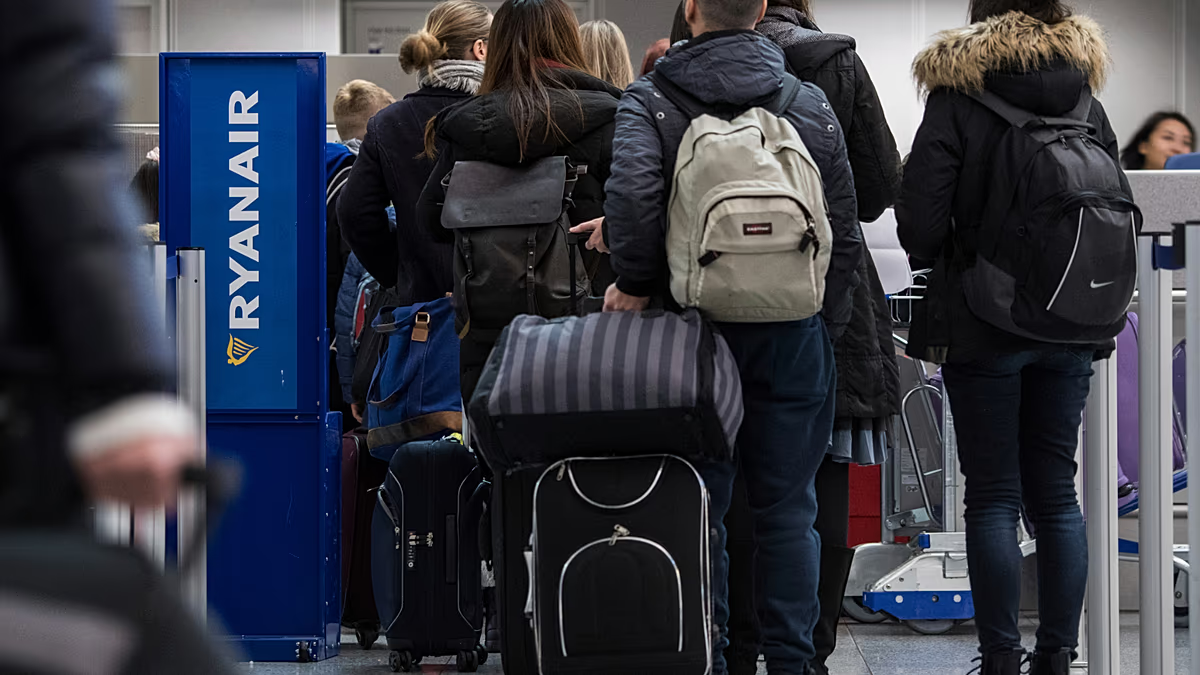Navigating Ryanair’s Digital Boarding Pass Policy: What Travelers Need to Know
In a move toward digitalization that has sparked considerable debate, Ryanair implemented a significant policy change on November 12th requiring passengers to use digital boarding passes through the airline’s mobile app. This shift away from traditional paper boarding passes has raised questions about accessibility, practicality, and passenger rights, particularly for elderly travelers and those without smartphones. While the airline has touted this as a modernization effort, the policy has encountered regulatory pushback, with Portugal’s National Civil Aviation Authority (ANAC) taking a firm stance to protect passenger rights within its jurisdiction.
The new requirement specifies that travelers must check in online and generate their boarding passes through the Ryanair app, effectively eliminating paper boarding passes except in specific circumstances. Ryanair’s guidelines initially suggested that printed boarding passes would only be accepted for passengers who don’t own smartphones, creating confusion among travelers. This policy shift prompted immediate concerns about what happens in common scenarios—when phones run out of battery, lose internet connection, or are lost or stolen during travel. Many travelers have questioned whether these digital-only requirements unfairly disadvantage certain groups, particularly older passengers who may not be comfortable with smartphone technology or those traveling in areas with limited connectivity.
Portugal’s aviation authority has emerged as a key defender of passenger rights in response to Ryanair’s policy. After carefully examining the airline’s website information and requesting additional clarifications, ANAC concluded that while Ryanair claims to guarantee all passenger rights—including those with disabilities, reduced mobility, or without smartphones—the implementation of the policy required further oversight. The Portuguese authority has taken a proactive approach, formally informing Ryanair of its obligations to ensure compliance with established passenger rights frameworks. This intervention represents an important check on the airline industry’s push toward digital-only services, recognizing that such transitions must account for diverse passenger needs and circumstances.
ANAC’s guidance explicitly states that Ryanair cannot refuse boarding to passengers in Portugal who have a confirmed reservation and have completed online check-in simply because they lack a digital boarding pass. Furthermore, the airline is prohibited from imposing mandatory fees for obtaining or using physical boarding passes. While Ryanair had already confirmed that travelers could request paper boarding passes free of charge at airport check-in desks if they had already completed online check-in, the Portuguese authority’s intervention provides an additional layer of protection for passengers. Importantly, ANAC’s statement clarifies that passengers in Portugal do not need a specific reason—such as a dead phone battery—to be permitted to board without a digital boarding pass, ensuring broader accessibility for all travelers.
The tension between modernization efforts and passenger accessibility highlights the challenges airlines face in balancing technological advancement with inclusive service. While digital boarding passes offer conveniences like reducing paper waste and streamlining the boarding process, the transition raises legitimate concerns about digital exclusion. For many travelers, particularly those who are less tech-savvy or those with older model phones that may not support the latest apps, navigating digital-only systems can create unnecessary stress and potential barriers to travel. Ryanair’s policy, though aimed at efficiency, underscores the importance of maintaining alternative options during technological transitions to ensure that air travel remains accessible to all demographics, regardless of their digital literacy or access to smart devices.
As this situation continues to evolve, ANAC has committed to ongoing monitoring to ensure both safety and compliance with air transport passenger rights. This regulatory oversight reflects a broader tension in the airline industry between streamlining operations through technology and maintaining inclusive service standards. For travelers flying Ryanair, particularly those concerned about digital boarding pass requirements, the Portuguese authority’s intervention provides important reassurance that their rights remain protected within Portuguese territory. The controversy serves as a reminder that while digital transformation offers many benefits to the travel industry, such changes must be implemented with careful consideration for all passengers, ensuring that advances in technology enhance rather than hinder the travel experience for everyone. As other countries and regulatory bodies observe this situation, Ryanair’s policy may face similar scrutiny in other markets, potentially leading to a more nuanced approach to digital boarding pass requirements across the airline’s entire network.










